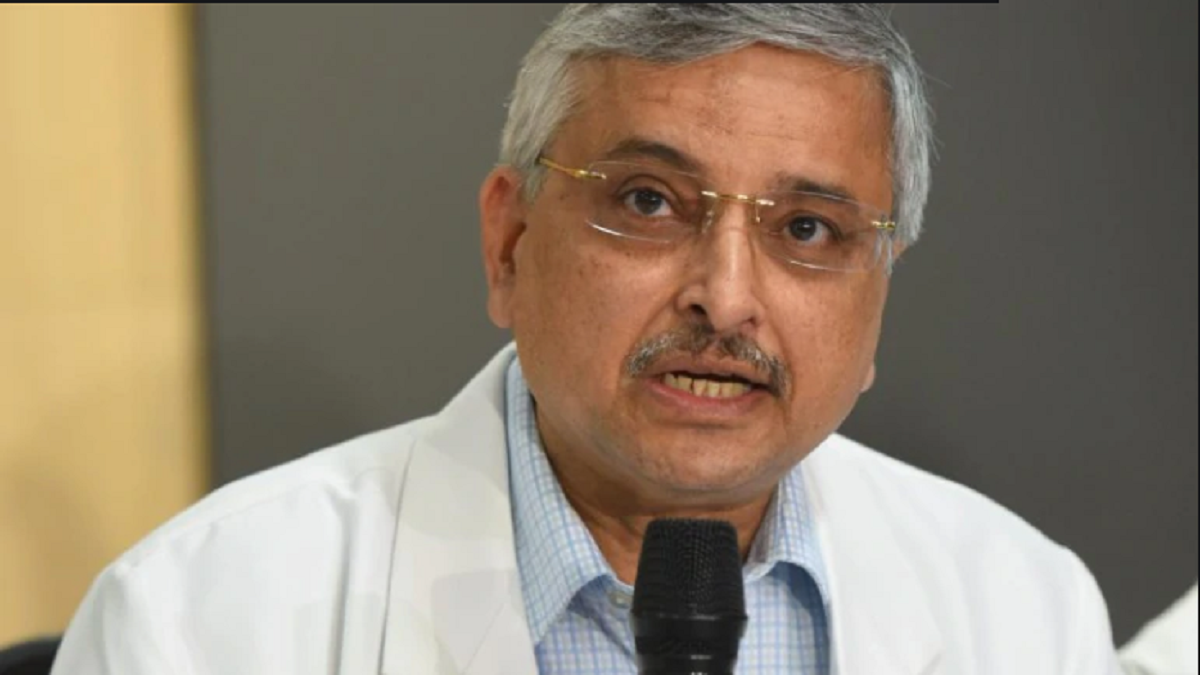


All India Institute of Medical Sciences Director Dr Randeep Guleria talks about the status of ongoing vaccine trials at AIIMS, how important it is to follow proper guidelines during trials, and his concerns about Russia’s new vaccine claims.
Q. Why is India experiencing a spike in Covid-19 cases?
A. Our numbers are high because the population is also large. But if you look at cases per million of the population, then the numbers are not that high. Right now, in smaller towns and states like Bihar, Uttar Pradesh and Karnataka, there is an increase in cases, but this will flatten gradually and show a downward trend.
Q. When do you think the graph will start declining?
A. It depends on how the virus behaves. If everyone maintains physical distancing, hand-washing, wearing masks and getting themselves tested as soon as they have symptoms, then this will happen much earlier. But since the lockdown lifted, people have started moving around, not wearing masks, not physically distancing — if this continues, then the cases will continuously increase because then people are allowing the virus to spread.
Q. Many scientists and doctors are uneasy with Russia’s vaccine and have questioned it. Do you think it may put people at risk?
A. Whenever you have a vaccine, there are two very important things: One is safety and the other is efficacy. If we look at safety, then it is quite short-term. This means any immediate reaction can occur early, within 24 to 48 hours, while some can occur later on. We also know vaccines which lead to neuro-related problems, while there are some reactions which occur with the infection. So, it has been shown that sometimes you get the vaccine-dependent enhancements that you have been vaccinated for but when you get Covid-19, immunity isn’t that high and it actually leads to a more severe infection. So, whenever you talk of a vaccine, you have to be sure that there won’t be long-term or short-term side effects and that there are no vaccine-related side effects with the infection. Because you are going to administer it to a large number of healthy people, it will be very unethical if you cause all those people to get a severe disease or the side effects of the vaccine, rather than safety from the disease. Safety is very important and one should also have good safety data. People are worried now because there is no data published by Russia or reviewed by WHO or any other international agency, which can say that there is good safety data as far as the vaccine is concerned. Secondly, how effective is the vaccine? Is it creating immunity which is longlasting or short-lasting, is it just for a few weeks or a month or a few years? That data is also not there. They should share this data with the world. If they have data on safety and efficacy, then it is a good thing. But without the data, people will obviously get worried, especially because in other vaccines, the data has been shared globally and is available in the public domain. This should also be made available in the public domain so that people can see, analyze and feel comfortable about the vaccine.
Q. What results have been seen in the vaccine trials at AIIMS? What stage have the ongoing trails reached?
A. The Bharat Biotech vaccine is already in the second phase. Initial signals are good and safe, but we have to wait for 28 days to see the safety and immunogenicity of people undergoing the trials. But a number of patients have received their second dose and they are being followed up. This has been done in multiple sites. So far, ten groups of people have been followed up but then the numbers will increase when we see the results after 28 days. So, you will get some data within the next few weeks.
Q. What kind of reactions have been noticed in people during the trials?
A. Some people had a reaction where the injections had been given. Other than that I don’t think that there are any serious reactions, which is why it is being continued now with the second dose and the follow-up.
Q. What about the Mycobacterium W (Mw) drug trials which were started in AIIMS before Covaxin trials?
A. Mw is also for immunity. There is some data which suggests that it may be helpful in treating Covid-19 or for improving immunity in severe Covid-19 infections. That study has also been conducted on different groups of patients, one for mild cases and another on serious patients. This is the drug which is being marketed by Cadila, whose trials are being conducted together with CSIR.